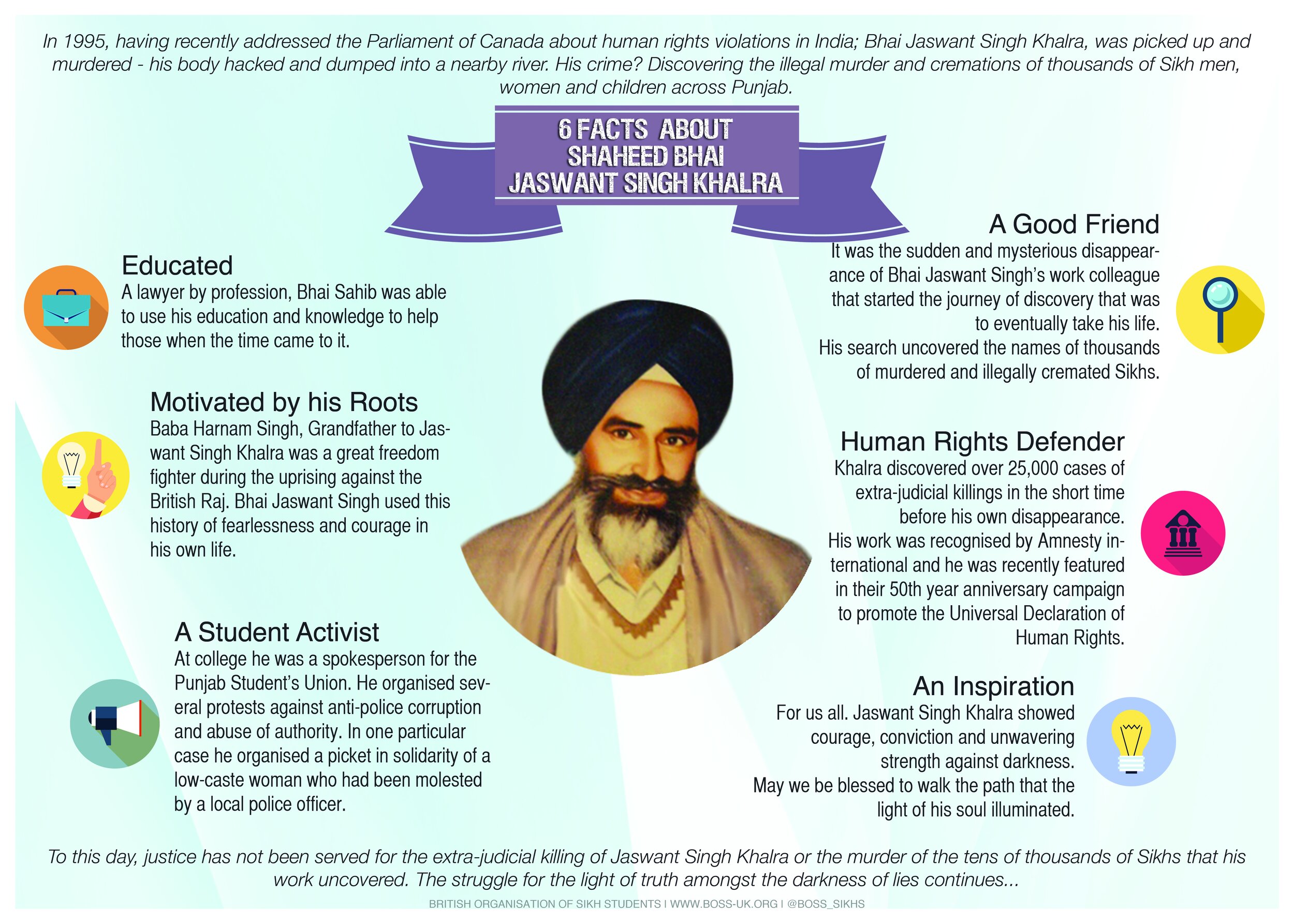Jaswant Singh Khalra JSK Heritage Trust is a non-profit organization based in Punjab, India, dedicated to preserving the memory of Jaswant Singh Khalra and promoting human rights in the region. Jaswant Singh Khalra was a human rights activist who exposed the widespread human rights violations committed by the Indian security forces during the Sikh insurgency in Punjab in the 1980s and 1990s. He was abducted and later killed by the police in 1995.
The JSK Heritage Trust was established by Jaswant Singh Khalra’s family and friends to continue his legacy of human rights activism and promote justice for the victims of human rights abuses. The trust’s main objectives include raising awareness about Jaswant Singh Khalra’s life and work, supporting victims of human rights abuses, and advocating for justice and accountability for perpetrators of human rights violations.
The JSK Heritage Trust organizes various events and initiatives to promote its objectives, including seminars, workshops, and cultural programs. The trust also operates a human rights resource center that provides legal aid, counseling, and other support services to victims of human rights abuses.
One of the significant achievements of the JSK Heritage Trust was the prosecution of several police officers responsible for Jaswant Singh Khalra’s abduction and killing. The trust’s efforts also led to the creation of a commission of inquiry by the Indian government to investigate the human rights violations committed during the Sikh insurgency in Punjab.
Overall, the JSK Heritage Trust is a vital organization that seeks to promote human rights, justice, and accountability in Punjab, India. Its work honors the memory of Jaswant Singh Khalra and seeks to build a society where human rights are respected and protected.
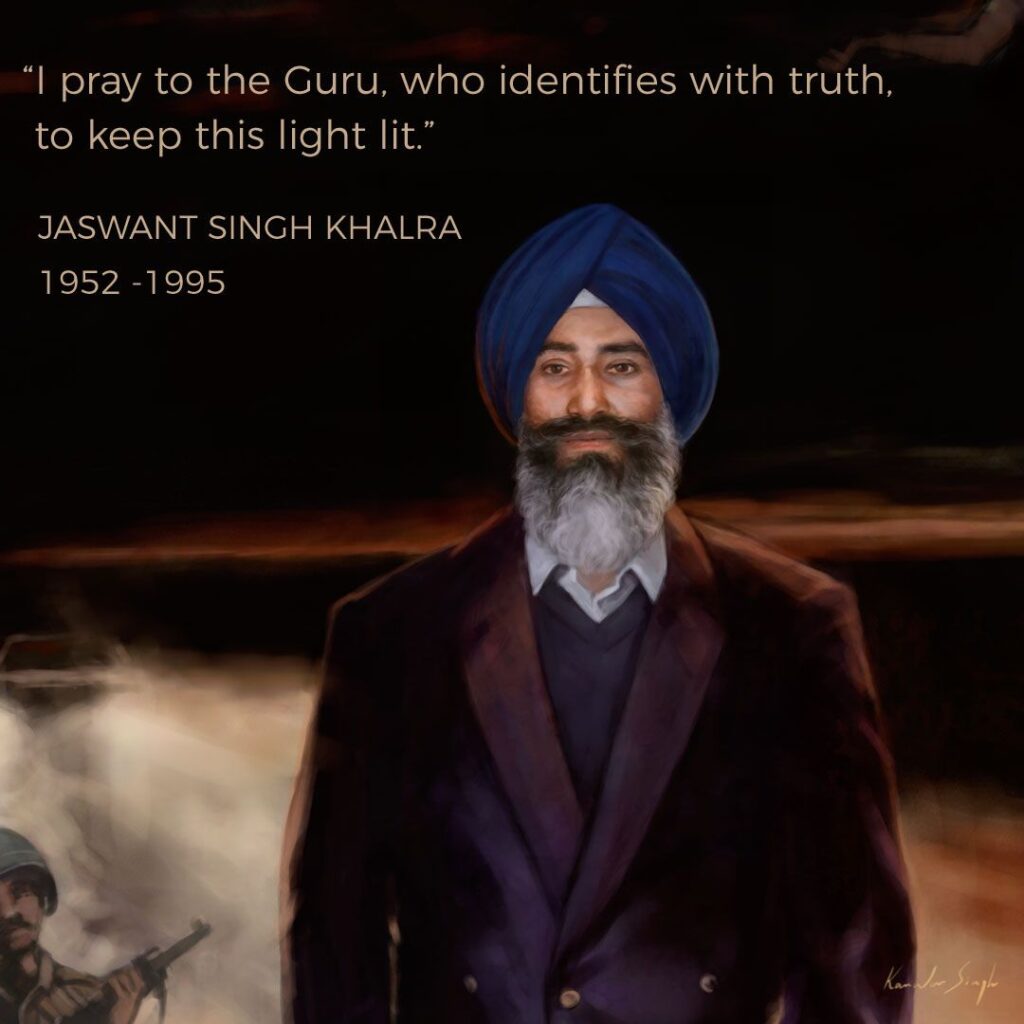
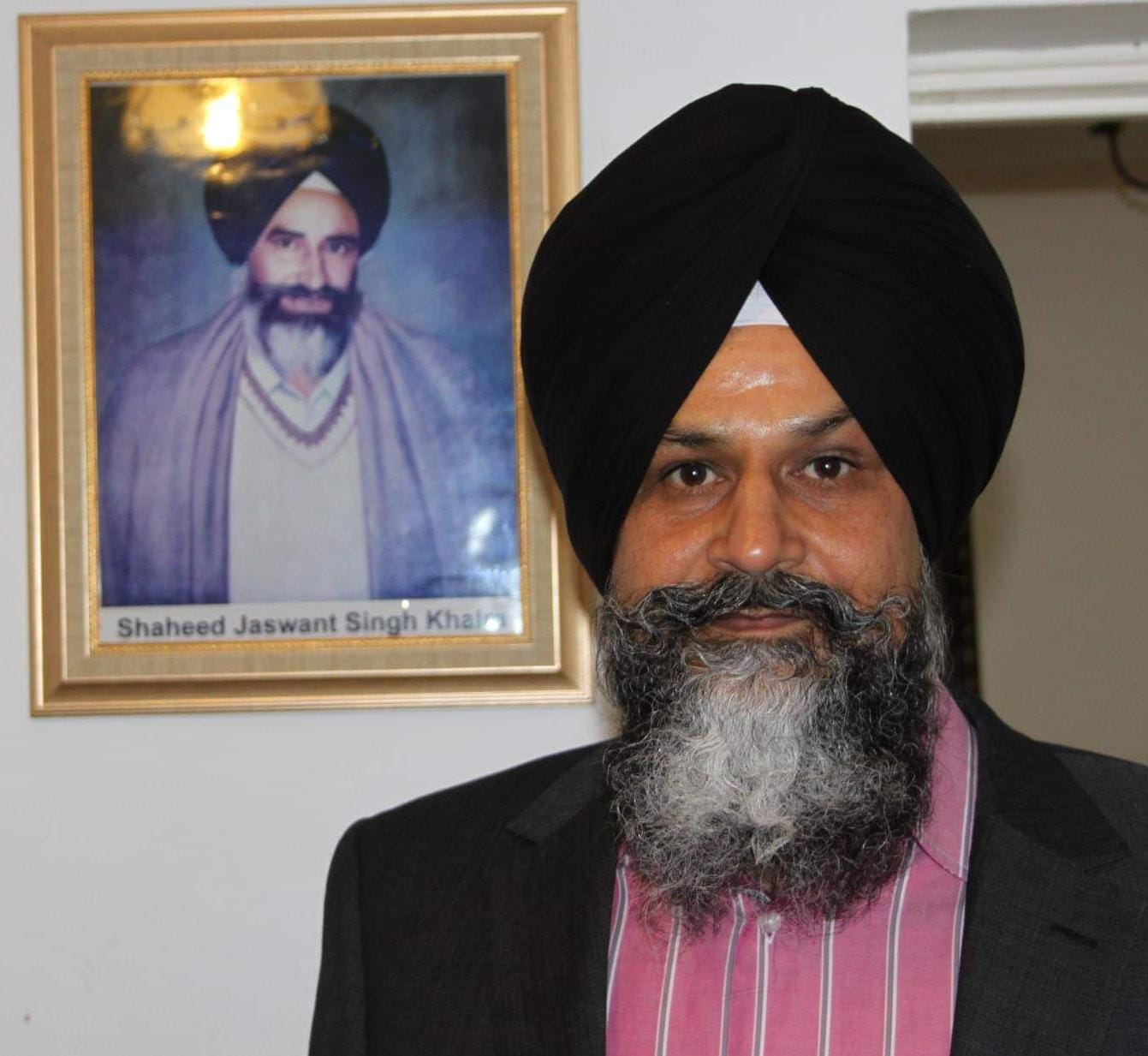
Amarjit Singh Khalra
Amarjit Singh Khalra
Born in 1961 in Punjab, I was the youngest of nine children. From an early age I remember being in awe of my brother, Jaswant Singh Khalra. I felt a close connection with him and watched and listened to him, his friends, and political activists on raising awareness of Sikh values.
His friends would arrive, and I would serve them food at the same time listening and this became my political education. I read books that Jaswant Singh bought for himself, building up my knowledge of the Sikh history, listening to my parents telling us stories.
When I enrolled at college, students were already aware of my brother and through this I had the opportunity of getting involved in activities to successfully highlight students’ rights and to lead the Student Union.
I came to England in the 80s and married and settled down. Jaswant Singh came to visit a couple of time and, during his time here, he shared his knowledge and thoughts of Sikh politics and taught me how to work with Human Rights organisations.
Following his abduction September 1995, I spent a huge amount of time travelling back and forth to India, assisting in the fight for justice for my brother and his work in uncovering thousands of disappearances, unlawful killings, and secret cremations of Sikhs perpetrated by the Punjab Police following the attack at Harmandir Sahib in 1984.
I was a member of the Shiromani Gurdwara Parbandhak Committee (SGPC), Amritsar Punjab for eight years, an organization in India responsible for the management of gurdwaras, Sikh places of worship in Punjab.
I am working now to raise funds to build a memorial for Jaswant Singh Khalra and the 25000 unlawful killings of Sikhs following the 1984 attack on Harmandir Sahib in Amritsar. A stadium has been built to encourage sports activities and education, and to keep the memory of Jaswant Singh Khalra and his work alive for future generations to come.
The Trust aims to fund education and sports for children who are from poor backgrounds, to give the opportunity to build a better future for themselves. Drugs has become an increasingly huge problem in Punjab due to poverty, the Trust will hopefully influence to as many lives as possible for the better.
Parmjit Kaur Singh
I was born and raised in the UK to parents of Punjabi heritage in the 1960s, the eldest of six children. As my parents were uneducated, common in those days, I was enrolled at the local gurdwara every Sunday to learn to read and write Punjabi at the age of 7. By the age of 8 I was writing letters in Punjabi to India for my parents. My interest in Punjab grew and at the age of 9 made my first trip to India along with my parents and siblings. I fell in love with Punjab immediately.
At the age of 18 I married Harjit Singh, born and raised in Punjab. He came to this country in 1982. He had always been involved in promoting Sikhism and politics from an early age. Following the attack of Harmandir Sahib Amritsar in 1984, Harjit became involved in Human Rights in Punjab and raising the profile of Sikhism.
In the years ahead, I wrote letters for my husband to support his views. I also became involved in the local gurdwara, doing sewa, assisting in camps held for children to educate them about religion, Punjabi sports and Sikh culture.
I first became aware of Jaswant Singh Khalra following his abduction through my husband in 1995. Jaswant Singh Khalra had been working on uncovering thousands of disappearances, unlawful killings, and secret cremations of Sikhs perpetrated by the Punjab Police. My husband contacted Amarjit Singh Khalra, brother of Jaswant Singh to offer support. I wrote a number of letters on behalf of my husband to Amnesty International to highlight issues in Punjab.
Following the unexpected sudden death of my husband in 2006, I formed a closer relationship with Jaswant Singh Khalra’s family in the UK. We continued to work together on raising the profile of Jaswant Singh Khalra’s work.
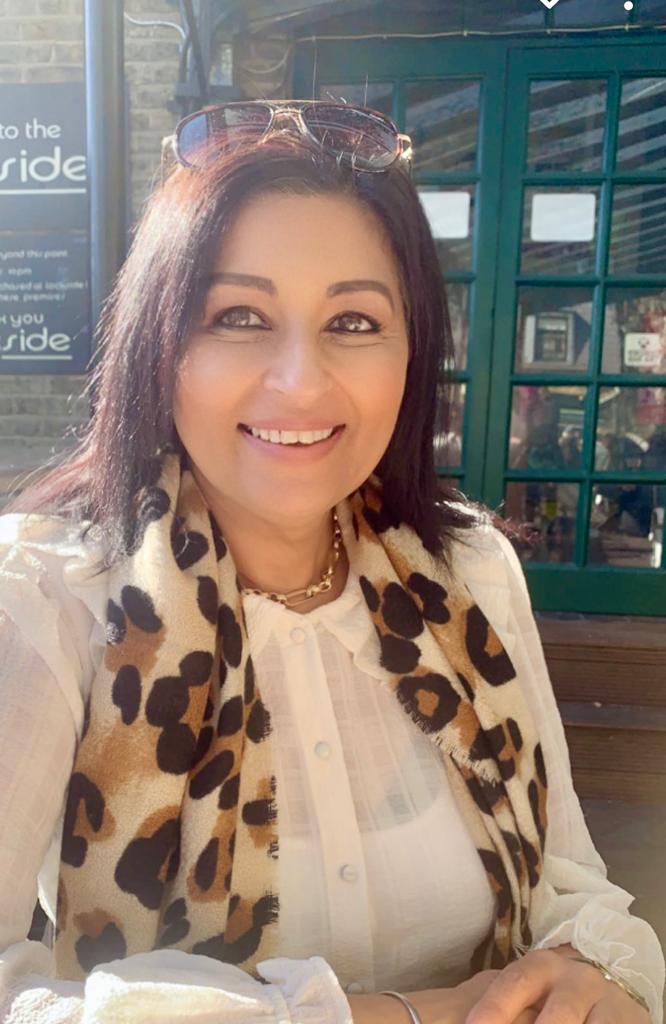
Parmjit Kaur Singh
We have now formed the Shaheed Jaswant Singh Khalra Heritage Trust, aimed at keeping alive the memory of Jaswant Singh Khalra and the 25,000 unidentified bodies for future generations to come. A statue of Jaswant Singh Khalra has been built as a memorial to him and the 25,000 unlawful killings.
The Trust will be raising funds to assist poor families who are unable to provide funds for education for their children. A sports stadium has also been set up in the village of Khalra to promote sports activities for youngsters, which is also where the memorial is situated. There is a huge issue with drugs in Punjab, we hope to make some difference by promoting education and sports facilities.
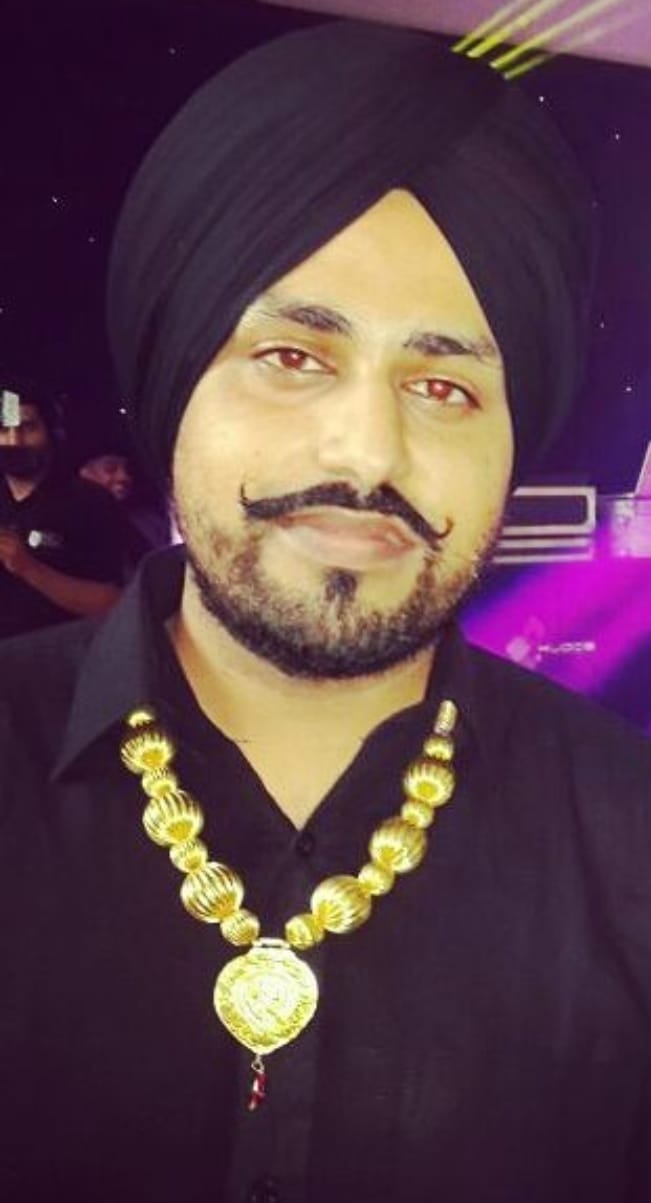
Satbir Singh Sandhu
Satbir Singh Sandhu
I am the nephew of Shaheed Jaswant Singh Khalra, I was born and raised in London, UK.
The importance of Education was always always encouraged, and I achieved a degree in Business from Kingston University. This can be attributed to the influence of my Thaiya, Jaswant Singh Khalra.
My thaiya ji inspired me to strive towards educating myself, not only academically, but also about core values of life, respect, equality and human rights.
My aim is to continue the teachings of my Thaiya Ji – to educate our people about our history, human rights, equality as well as raising the profile of Sikhi.
The shaheed Jaswant Singh Khalra trust will enable us to keep his legacy alive for generations to come. The trust will continue the work of Shaheed Jaswant Singh Khalra by encouraging Punjabi youth to take up sports by providing facilities such as the stadium in Khalra Panjab where we hold kabaddi tournaments and will look at holding football camps.
Through our efforts and fund raising we can actively work towards assisting poor families with funds for education for their children.
The emphasis on sports and education will help tackle big and underlying issues in Panjab right such as drugs and alcohol. Together we can make a difference to our community and Panjab as a whole.
